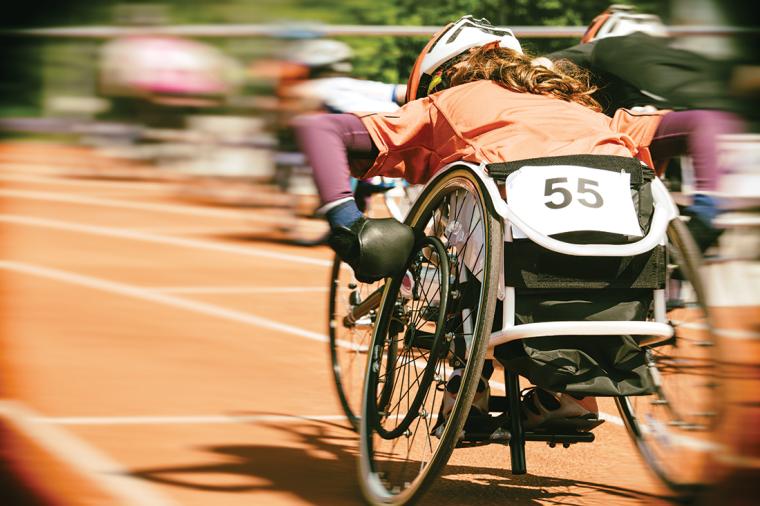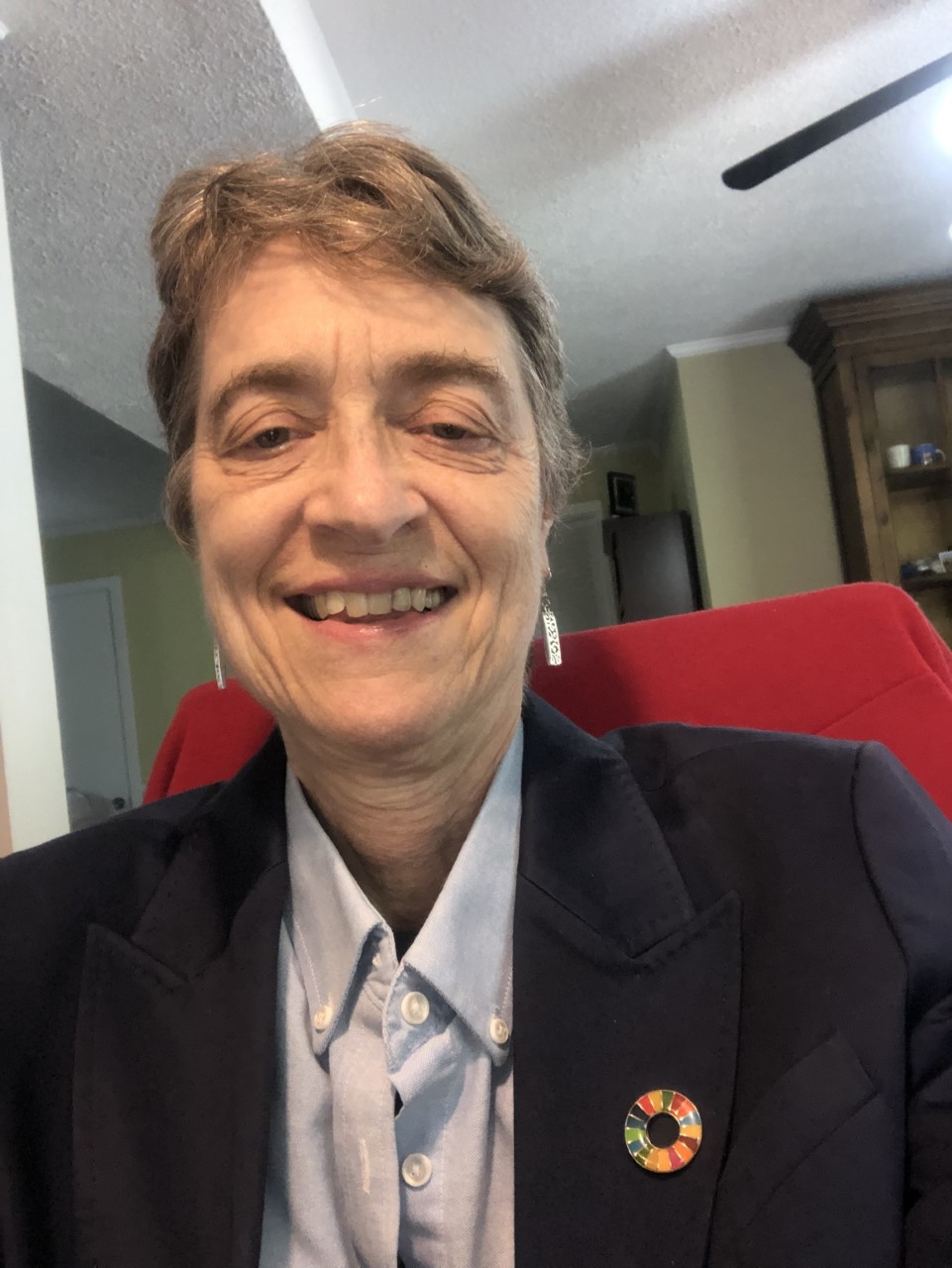
Sport presents great opportunities to promote inclusion in numerous ways. As we approach the 50th anniversary of the passage of the Rehabilitation Act of 1973, this is an appropriate time for sport event planners to make a strong attempt to include events for athletes with disabilities. The most recent Summer Paralympic Games in Tokyo saw more than 4,000 athletes competing in 26 sports with an estimated cumulative global TV/digital platform audience of more than 4 billion people. The 2019 Special Olympics World Games in Abu Dhabi included approximately 7,000 athletes.
The number of competitors with disabilities continues to rise and those competitors bring family and friends to their events, an important point to remember for individuals working in tourism or seeking events to bring to their cities. Marketing statistics have also shown that individuals with disabilities as well as their families and friends are extremely brand loyal. Event sponsorship can prove to offer benefits for this population.
Opportunities for athletes with disabilities range from disability-specific (a wheelchair rugby tournament) to inclusive (wheelchair racers competing in a city marathon). Athletes with disabilities are not a monolithic group since the population includes individuals with physical and/or cognitive disabilities. While these groups may have different needs for their events, there are some basic necessities to keep in mind when planning events for athletes with disabilities. This article is intended to highlight some event best practices when preparing to host an event for athletes with disabilities.
Securing Support Resources

Before hosting an event for athletes with disabilities, find resources to help you and your staff prepare for the event. For the most part, the event will operate like any other sporting event, but there are resources available that may assist efforts. For example, a number of organizations specialize in hosting or providing equipment for running events designed specifically for athletes with disabilities. Some of these organizations can be contacted directly and may provide a cadre of resources to view online.
One place to start when securing support resources is to contact the local school district and speak with staff who work with students with disabilities in adaptive physical education programming. For example, depending on where you work, there may be a local school for the visually impaired. It is wise to connect with individuals who work with people with disabilities on a daily basis and to take advantage of their suggestions.
Local colleges and universities may also have a physical education department that teaches adaptive sports classes. This avenue could also be a source for potential volunteers. A sports organization in your vicinity may also have experience providing athletic programming for people with disabilities. Local parks and recreation departments, for example, often have designated individuals who work with adaptive programming for the disabled population. Organizations such as the Miracle League (baseball for people with disabilities) or Special Olympics can also provide guidance. Local rehabilitation centers may sponsor Blaze Sports programming focusing on disabled youth.
Reaching out to a number of state or national organizations that have resources for the disabled is another outlet. Examples of these organizations include the Lakeshore Foundation in Alabama, Move United in Washington, DC and the United States Olympic and Paralympic Committee (USOPC) in Colorado Springs. Finally, the International Paralympic Committee has a number of online resources that offer support material.
Planning for Adaptive Sports
When planning an event featuring athletes with disabilities, the natural place to start is with the physical layout of the facility where the event will take place. The location includes the usual accommodations which meet the Americans with Disabilities Act (ADA) standards for ramps, wide doorways, accessible bathrooms and locker rooms. However, there is much more than the physical landscape to prepare for when providing adaptive sport opportunities for a population of those with disabilities.
Events including adaptive sports likely include media coverage, so it is important to provide the media with a guide for working with people with disabilities. The International Paralympic Committee’s IPC Guide to Reporting on Para Athletes is available online and could be printed and included in a packet with media credentials.
Spectators at these events will may attract a greater number of people with disabilities than at a regularly scheduled event. Make sure there is sufficient wheelchair-accessible seating. In addition, there will be more vehicles needing designated disability parking spaces. It may be necessary to close off additional spaces and have staff working in the lots who can direct people to those spaces and ensure they are occupied only by people with visible disability parking placards or vehicle license plates.
If needed, provide a means for individuals who need assistance transferring from the parking lots to the event by providing golf carts with drivers as well as extra wheelchairs and staff to ease the ingress experience. Consider the assistance provided to individuals needing assistance moving throughout airports. Depending on the location of your event, you may also need to provide transportation for athletes with disabilities so make sure any busses or shuttles are all fully accessible. If anyone is arriving from out of town, it would be useful to have a list of accessible room availability at local hotels.
Finally, it is important to train event staff to properly meet the needs of individuals with disabilities.
Interacting with Athletes with Disabilities

When working with athletes or fans with disabilities, one of the most important considerations is appropriate language. The words that we use shape the image of the world in which we live. Always use “people first” language. The term athlete with a disability is an example of proper language. Avoid descriptors such as “handicapped” or saying this person suffers from cerebral palsy because individuals do not “suffer” from a condition; they live with it just like someone lives with not being very tall or having to wear glasses.
Another consideration is to treat people with disabilities with respect and dignity. Never assume someone with a disability cannot do something like open a door or read a sign. The best way to assist someone is to remember a simple phrase: “Just ask – Just listen.” Ask the person what they need and then respond accordingly. This action is just customer service. It is important to meet the person where they are and respect their abilities over their disabilities. Remember too that it is not the person with the disability’s fault if they cannot access something. The situation is not “Jaylyn cannot get to the pool because she uses a wheelchair.” The correct way of framing the situation is “Jaylyn actually cannot get to the pool because the pool is not accessible.”
If someone with a disability has another individual with them for assistance, always make sure to speak directly to the person with the disability and not the assumed caregiver. In other words, do not say to the assistant, “What will Taylor need in the locker room?” Ask Taylor directly first! Just because someone has a physical disability does not mean they cannot speak for themselves and express what they need in order to be successful.
Final Considerations
The bottom line is that events for athletes with disabilities require many of the typical preparations as any sporting event. Staffing, proper facilities, transportation, safety and media coverage must all be arranged. The information in this article is meant to provide a brief overview of some unique considerations when staging these types of events.
Whether you are setting up a local league, a one-time event or incorporating athletes with disabilities into existing events, a well-run event will bring people back. The disability sport world is a well-connected community and word about well-run events will spread quickly and pay long-term dividends for organizers and rights holders. These simple straightforward tips will make a better sporting experience for everyone. SDM

